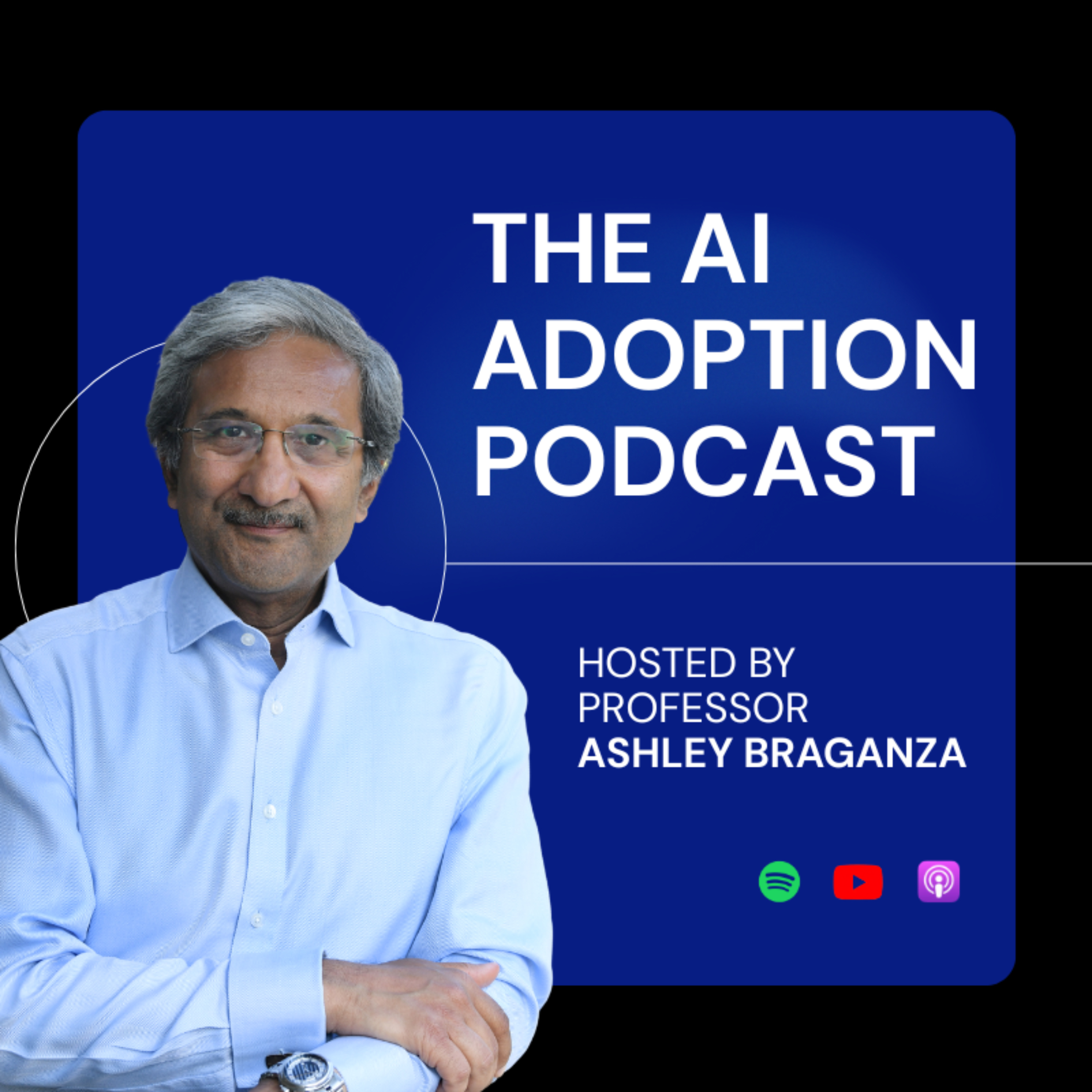The AI Adoption Podcast

The AI Adoption Podcast
Podcast Description
The AI Adoption Podcast where cutting-edge artificial intelligence meets real-world relevance. The show offers an accessible, approachable take on some of the most complex topics in AI, making the effects of AI understandable and engaging for everyone—from curious beginners to tech-savvy professionals and business leaders.
Each episode features in-depth conversations with leading AI policy makers, researchers, innovators, regulators, ethicists, and thought leaders. You will hear diverse voices, even sceptics, ensuring balanced and lively discussions, exploring the adoption of AI.
Podcast Insights
Content Themes
The podcast covers diverse themes including AI advancements, ethical considerations, energy consumption in AI, and the impact of AI on various industries. Episodes explore topics such as agentic AI in organizations, achieving Green AI, and AI's role in advertising, featuring real-world applications and expert insights.

The AI Adoption Podcast where cutting-edge artificial intelligence meets real-world relevance. The show offers an accessible, approachable take on some of the most complex topics in AI, making the effects of AI understandable and engaging for everyone, from curious beginners to tech-savvy professionals and business leaders.
Each episode features in-depth conversations with leading AI policy makers, researchers, innovators, regulators, ethicists, and thought leaders. You will hear diverse voices, even sceptics, ensuring balanced and lively discussions, exploring the adoption of AI.
This episode with Chris Blatchford, CTO at Kingfisher, quickly became a conversation about leadership mindset and AI technology. Kingfisher is best known through its brands such as B&Q and Screwfix.
Chris described an organisation that treats AI as a board-level capability. Foundations first, so teams can build safely and repeatedly rather than improvising. Kingfisher’s data lake, Nucleus, and its AI framework, Athena, sit underneath everything. That choice signals discipline and intent. AI becomes an operating model, not a sequence of use case pilots.
From there, the focus shifts to customer focused innovations, personalisation and value, not superficial novelty. Customer-facing AI stays anchored in a simple outcome: customers reach the right product fast. Chris spoke about moving beyond keyword search towards conversational and semantic search, then using context such as prior searches, purchases and loyalty behaviour to sharpen relevance. He shared a hard-edged commercial marker too. Recommender systems contributed around 10% of e-commerce sales last year, with ambition to grow that through 2026.
For boards, the supply chain segment will resonate. Chris described near real-time visibility at SKU level, including fulfilment timing and shipment progress, supporting faster decisions on replenishment and stock gaps. It is operational clarity in a world full of noise.
Chris declared that ensuring Kingfisher rolled-out AI responsibly as one of the areas, alongside cybersecurity, that genuinely keeps him awake. Again, this reflects the depth of commitment to good AI governance, bias checks, explainability, controlled customer roll-outs, plus tech-literate executives who press on risk as well as upside. Innovation is encouraged, within a bounded context with rules.
His view on AI’s impact on jobs and skills was measured and human-centric. AI tools support colleagues rather than remove them, freeing time for higher value work. Roles evolve through better prompting, stronger curation of information, and sharper critical thinking, with data-savviness becoming essential.
This episode is for boards and senior teams who want to scale AI adoption that holds up under scrutiny, delivers value, and earns trust.
Chapters
00:00 AI in Retail
02:57 Kingfisher's AI Strategy and Innovations
06:08 Enhancing Customer Experience with AI
08:47 Dynamic Pricing and Its Implications
11:49 Supply Chain Visibility through AI
14:45 Responsible AI Implementation
17:55 Impact of AI on Jobs and Workforce
20:47 The Effects of AI on Retail Jobs
23:49 Skills for the Future Workforce
26:56 Supporting SMEs in AI Adoption
29:41 Advice for Large Organisations on AI Adoption

Disclaimer
This podcast’s information is provided for general reference and was obtained from publicly accessible sources. The Podcast Collaborative neither produces nor verifies the content, accuracy, or suitability of this podcast. Views and opinions belong solely to the podcast creators and guests.
For a complete disclaimer, please see our Full Disclaimer on the archive page. The Podcast Collaborative bears no responsibility for the podcast’s themes, language, or overall content. Listener discretion is advised. Read our Terms of Use and Privacy Policy for more details.